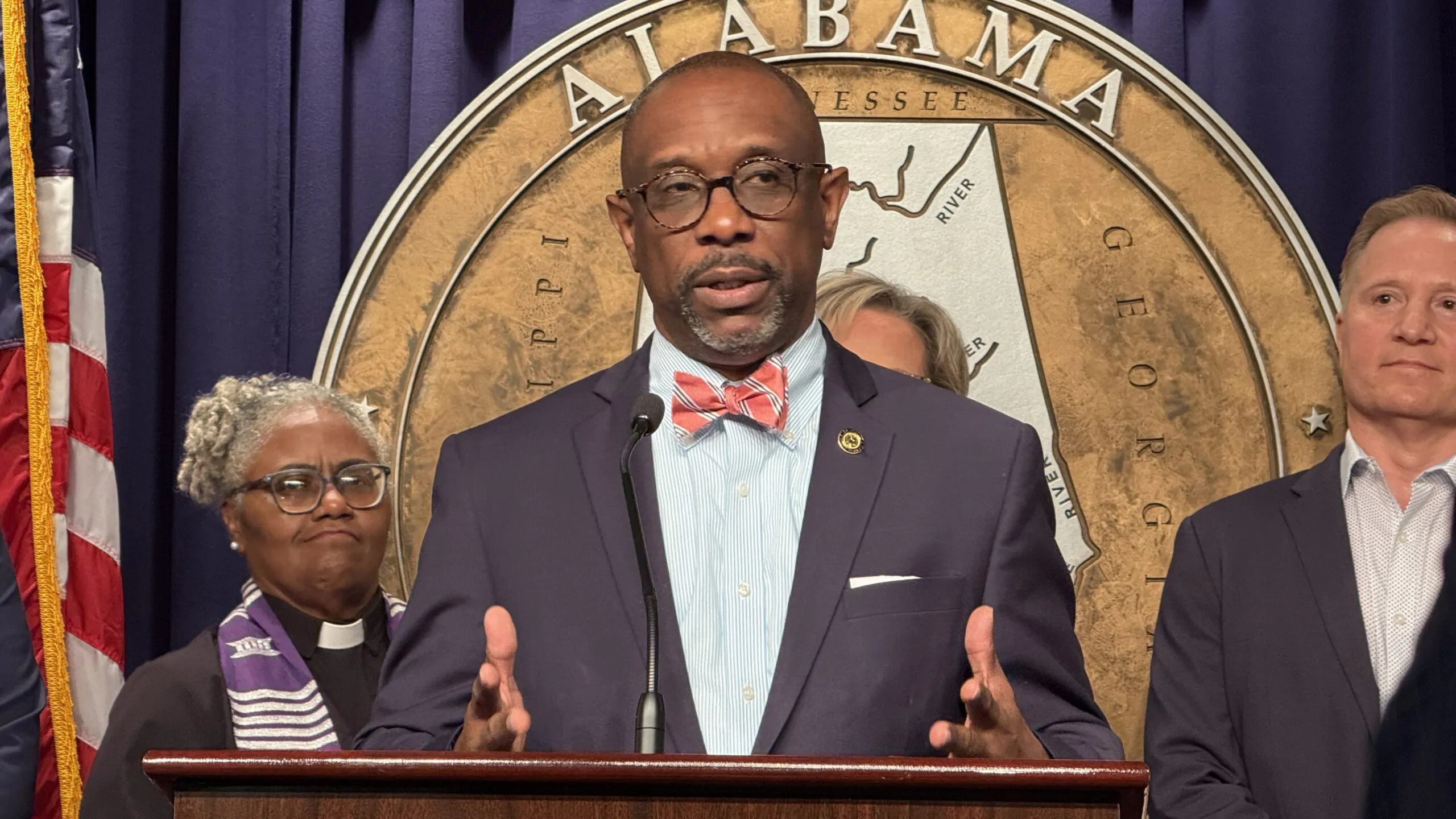Speakers for several Alabama advocacy groups warned Thursday that the federal budget bill—officially dubbed the “One Big Beautiful Bill Act”—would create chaos and cruelty in Alabama.
Congressional Republicans are pushing legislation that would make drastic cuts to food assistance under the Supplemental Nutrition Assistance Program. Under the House-passed bill, states would have to pay for a portion of SNAP benefits, which have been 100 percent federally funded for decades, according to a sliding scale. This cost shift could leave Alabama on the hook for up to $300 million a year in direct benefits and additional administrative costs.
Michael Ledger, president and CEO of Feeding the Gulf Coast, said that his food bank collaborates with over 800 partners to serve nearly 400,000 individuals who are food-insecure.
“If you’ve ever been to a food pantry with your church, imagine nine times as many people showing up,” Ledger said. “It would be perhaps insurmountable.”
If state lawmakers could not or would not provide that funding, Alabama would be forced to cut SNAP benefits significantly—or even eliminate the program altogether for nearly 800,000 participants statewide. Senate leaders are still aiming to shift more SNAP costs to states, even after a ruling last week that the Senate version’s specific approach would violate procedural rules.
Ledger and others combated myths about the SNAP program, including claims that it is riddled with fraud. The reality, Ledger said, is that less than 1 percent of all SNAP funds are involved in fraud. There is also a perception that people using SNAP benefits are eating like kings, but the average SNAP benefit is just $121 a month.
“It’s intended to be a supplement,” said Rhonda Mann, executive director at VOICES for Alabama’s children. “To take it away would cause a lot of problems.”
Those problems extend beyond just people using SNAP benefits, Mann said, detailing how the loss in revenue could cause some grocery stores to close locations because of a loss of revenue.
On average, SNAP recipients stay in the program for less than a year, and 86 percent of households receiving funds include a person over 60, a child or a disabled individual.
SNAP isn’t the only federal money in trouble in the budget bill. Cuts to Medicaid could also result in up to 190,000 people becoming unable to afford coverage. The legislation would allow the expiration of extra financial help for health coverage through HealthCare.gov and would block Alabama from receiving an additional $619 million in federal incentives to expand Medicaid to cover adults with low incomes.
State Senator Kirk Hatcher, D-Montgomery, also spoke about the bill’s gutting of Head Start and LIHEAP, a program that assists low-income households with power bills.
“About 20 percent of my employees qualify for LIHEAP,” Hatcher said, acknowledging his role as director of Head Start Montgomery. “And then there’s my babies (Head Start students). Our program, without a doubt, for the last 60 years has had incredible measurable outcomes yet often finds itself on the chopping block by individuals who need to learn that every life has value.”
Hatcher said the Legislature is woefully unprepared for any shifting of costs from the federal government to state responsibility and called the state’s failure to address Medicaid expansion a “moral abomination.”
(Except for the headline, this story has not been edited by PostX News and is published from a syndicated feed.)

